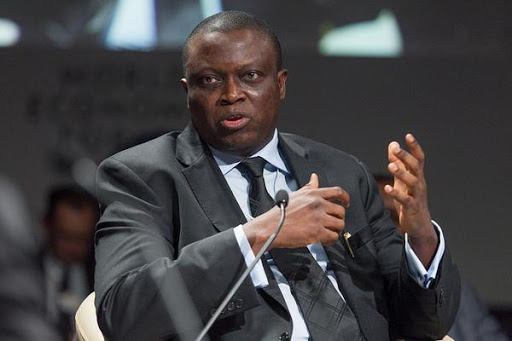
Former managing director of Nigeria Liquefied Natural Gas Limited (NLNG), Babs Omotowa has revealed that proposing a Nigerian corporation to commence the obligation of providing helicopter services for Shell was one judgment that could have wrecked his professional career in 2010.
According to him, he made the risky decision because he was convinced that perhaps a company in Nigerian could perform especially as it was becoming evident that the foreign organization saddled with the responsibilities of providing the services was becoming overwhelmingly costly.
Describing his experiences in an exclusive interview session with Akin Monehin, a thought leader, Omotowa confirmed his initial fear but was glad he made the call.
Also in his LinkedIn silhouette, Omotowa, is depicted as the present chairman advisory board of Montserrado Group, who worked with Shell Group for over 18 years. Even though he did not recall the name of the company news source, The Cable, however, found out that he was referring to Caverton Helicopters.
In his own words; Omotowa confirmed that he took the “tough decision” when he served under the designation, as vice president for logistics, infrastructure and health, safety, and environment for Shell companies in Nigeria.
He further revealed that an international company, which relished monopoly, had been delivering chopper services for Shell but had started to manipulate the system by coming up with constant price miles that could not be reconciled.
Omotowa however confirmed his support for local companies by stating how he decided alongside his workforce to make conscious efforts in finding out these local companies with a chance of offering them the opportunity to also show their capabilities while delivering the same services.
“We were working with these local companies and two of them took the challenge. They found partners in Denmark and Canada and started to develop their management systems, their technical capabilities. At some point, we felt that they had started to have the kind of capacity that we could make use of,” he narrated.
“So, I got the Shell technical authorities to come and audit, and assure that they indeed perform to the sort of challenges that we had in the oil and gas industry. Our experts came from London, assessed them and they passed the companies that they could indeed provide the services with the partnerships they had formed.
“We went for a tender and as I expected, the incumbent did not win because they had become quite expensive. They had just grown themselves beyond competition and the first time facing competition, they just didn’t win. So this local company (Caverton) won, and of course, it became a pause time for everyone. Now that the local company has won, what is going to happen?”
Babs Omotowa: My move could be a career-ending decision
Omotowa also talked about how he was summoned and questioned by his boss on how risky the prospect of using a local company could turn out especially as they had no experience of working in oil industry, while they were still probing the contract for Caverton Helicopters. His boss had warned that the move could be a career-ending decision.
He disclosed also how he maintained his decision and went on to not only acquire the contract for Caverton but went further to assist them in getting a loan from Shell worth the sum of $85 million. This enabled Caverton to buy its helicopters and save them the stress of having to lease aircraft for the duration of the seven-year contract.
“Of course, when I first brought the proposal again everybody refused. The finance team in the head office refused and I justified why we had to lend them money. One, it was for our safety. Two, we had committed, as a company to develop local capacity, we had local capacity development policy, so why not put our money where our mouth was?” he asked.
“They said ‘but you know this is unprecedented for a company to lend a contractor money, and in Nigeria again. The risks are too high, they won’t pay back. I said they will pay back because I have asked them to bring a bank guarantee. So if they default, we will call on the bank guarantee.
“Anyway, to cut the long story short, after quite a lot of discussions, running over weeks, they agreed and we borrowed them the money. So, now the contract was awarded, money was loaned, so the risk became if anything happened during the seven years of the contract, if they either didn’t pay back or there was an accident or incident, of course, I would have had to answer a different query or I might have had to leave the company.
“Fortunately, I think we had done enough due diligence. The company ran for seven years, there was no accident. The safety performance was about the best in the industry, and their service performance was better than the previous and they repaid all the money within the seven years we wanted. Not only did they do that, but they also developed capacity, they went on to win contracts of other international oil companies (IOCs) in Nigeria. They even won contracts of IOCs outside Nigeria. Now we have a local company who is now able to provide that service to Nigerian companies.”
Caverton Helicopters are doing well as they presently operate out of a 10,000 square meter flight facility at the Murtala Muhammad International Airport in Lagos. Moreso, they have acquired several properties and built infrastructure in which they carry out their operations, in Victoria Island (The Ozumba Heliport), Port Harcourt (NAF Base), Warri, and another African country like Cameroon.
Gift Joseph Okpakorese
Staff Writer







